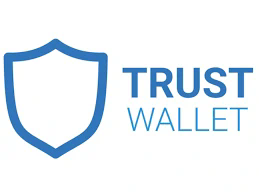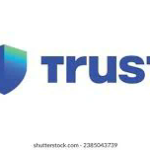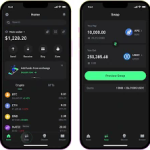An In-Depth Review of Trust Wallet: Features, Security, and User Experience
### Introduction
In the burgeoning world of cryptocurrency, wallet selection is critical for secure asset management and easy transactions. Among the various wallets available, Trust Wallet has emerged as a popular choice among users seeking a decentralized, secure, and user-friendly option. This article will provide a comprehensive review of Trust Wallet, exploring its features, security measures, user experience, and comparisons with other wallets in the market.
### What is Trust Wallet?
Trust Wallet is a mobile cryptocurrency wallet that was acquired by Binance in 2018. It offers a multi-coin wallet solution for a wide range of cryptocurrencies, including Ethereum, Bitcoin, and thousands of ERC20 tokens. Its design emphasizes simplicity and accessibility, making it suitable for both novice and experienced cryptocurrency users. Trust Wallet is available for both Android and iOS devices, ensuring broad compatibility for mobile users.
### Key Features of Trust Wallet
#### 1. Multi-Currency Support
One of the standout features of Trust Wallet is its support for a vast array of cryptocurrencies. Users can hold not only popular assets like Bitcoin (BTC) and Ethereum (ETH) but also a variety of altcoins and tokens from different blockchains. This diverse support makes Trust Wallet an attractive option for investors with varied portfolios. The wallet’s continuously updated database of supported assets ensures that users have access to new tokens and evolving markets.
#### 2. Decentralized Nature
Trust Wallet operates as a non-custodial wallet, meaning users have complete control over their private keys and funds. Unlike custodial wallets, where the wallet provider controls the keys, Trust Wallet enables users to manage their own security. This decentralized approach reduces the risk of hacks and breaches that often accompany centralized wallet providers. Users can back up their wallet using a simple recovery phrase, allowing for easy restoration in case of device loss or failure.
#### 3. User-Friendly Interface
The user interface of Trust Wallet is designed with simplicity in mind. Upon launching the app, users are greeted with a clean and intuitive dashboard that allows for effortless navigation. Features such as sending and receiving funds, checking balances, and engaging with decentralized applications (dApps) are all easily accessible. This user-centric design is crucial in attracting new users who may feel overwhelmed by complex wallet functionalities.
#### 4. Built-in dApp Browser
One of the unique features of Trust Wallet is its integrated decentralized application (dApp) browser. This allows users to interact with dApps directly from the wallet, enabling seamless access to decentralized finance (DeFi) platforms, non-fungible token (NFT) marketplaces, and more. Users can access a variety of services such as swapping tokens, lending, and yield farming without needing to exit the wallet interface.
#### 5. Integration with Binance DEX

As a Binance-owned wallet, Trust Wallet offers unique integration with Binance’s decentralized exchange (DEX). Users can trade cryptocurrencies directly from their Trust Wallet accounts without transferring funds to an exchange. This feature not only enhances the trading experience but also boosts security, as users maintain control of their private keys throughout the trading process.
### Security Features
#### 1. Private Key Control
Trust Wallet’s non-custodial nature ensures that users retain full control over their private keys. This means that only the wallet holders have access to their funds, eliminating the risks associated with third-party handling. Users can back up their keys using a seed phrase, which can be used to restore access in case of device loss or theft.
#### 2. Biometric Authentication
Trust Wallet supports biometric authentication, allowing users to secure their accounts using fingerprint or facial recognition technology. This added layer of security ensures that even if someone gains access to the device, they cannot easily access the wallet without the user’s biometric data.
#### 3. Open Source Code
Trust Wallet prides itself on being open source, meaning its code is publicly available for review. This transparency allows security experts to audit the wallet for vulnerabilities, providing users with peace of mind regarding its safety measures.
#### 4. Regular Updates
Maintaining security in the crypto space is paramount, and Trust Wallet regularly releases updates to address vulnerabilities and enhance features. Users are encouraged to keep their app updated to benefit from the latest security enhancements and improvements.
### User Experience
#### 1. Performance
Trust Wallet is designed for speed and efficiency. Transactions are processed quickly, and the wallet interface is responsive, making it suitable for real-time trading and transferring assets. Users have reported a smooth experience without significant lag time, even when accessing multiple features.
#### 2. Customer Support
While Trust Wallet provides extensive documentation and guides on its website, users may find that direct customer support could be improved. The reliance on community forums and self-service options may not meet the immediate needs of users facing issues. However, the supportive user community can often provide assistance quickly.
#### 3. Educational Resources
Trust Wallet offers numerous educational resources to help users improve their understanding of cryptocurrency and blockchain technology. This includes articles, how-to guides, and videos, which are beneficial for both beginners and seasoned investors looking to expand their knowledge.
### Comparing Trust Wallet with Other Wallets
#### 1. Trust Wallet vs. MetaMask
Both Trust Wallet and MetaMask are popular choices within the crypto community, but they cater to slightly different user bases. MetaMask is primarily a browser extension wallet, mainly focused on Ethereum and ERC20 tokens, while Trust Wallet supports a wider array of cryptocurrencies across multiple blockchains. Trust Wallet’s mobile focus provides flexibility for users who prefer managing their assets on the go.
#### 2. Trust Wallet vs. Ledger
While Trust Wallet is a software wallet, Ledger is a hardware wallet known for its security. Hardware wallets like Ledger store private keys offline, making them less susceptible to hacking compared to software wallets. However, Trust Wallet excels in convenience and ease of use, making it a preferred choice for daily transactions, while Ledger is more suited for long-term storage of significant assets.
#### 3. Trust Wallet vs. Coinbase Wallet
Coinbase Wallet, similar to Trust Wallet, allows users to manage their private keys. However, Coinbase Wallet is often considered more user-friendly for beginners due to its association with the Coinbase exchange. Trust Wallet, on the other hand, offers more robust features for dApp integration and crypto trading due to its Binance connections.
### Conclusion
Trust Wallet has successfully carved a niche for itself in the crowded cryptocurrency wallet market by offering a robust, decentralized, and user-friendly solution for managing and trading digital assets. Its commitment to user security, extensive asset support, and seamless integration with dApps distinguish it from other wallets. Although improvements in customer support and continuous updates are necessary for maintaining user satisfaction, Trust Wallet remains a viable option for both novice and experienced cryptocurrency users.
As the cryptocurrency ecosystem continues to evolve, Trust Wallet’s proactive approach to feature enhancement and commitment to user safety will likely ensure its place as a key player in the wallet space, catering to the needs of a diverse and growing user base.


